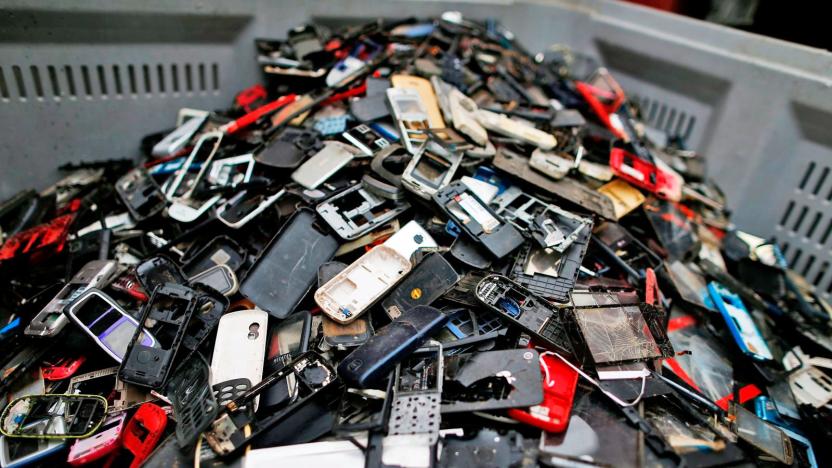CommonCharger
Latest

Europe takes another stab at standardizing phone chargers
The European Union has been trying for nearly a decade to get smartphone manufacturers to voluntarily agree to a common mobile phone charger. That apparently hasn't worked out so well, so the EU Commission may now take more forcible action, according to Reuters. "Given the unsatisfactory progress with this voluntary approach, the Commission will shortly launch an impact assessment study to evaluate costs and benefits of different other options," said EU competition Chief Margrethe Vestager.

Will new iPhone designs include Europe's common charger?
Way back in 2009, the European Commission reached a voluntary agreement with 10 mobile phone manufacturers to adopt a standard Micro-USB charge and sync interface. Apple, with its proprietary Dock connector design, was one of the parties that signed a Memorandum of Understanding (MoU) stating that they'd comply. Could the new iPhone(s) expected next week finally move to the standard connector? There are some compelling arguments why Apple won't and will stick with the 30-pin dock connector design for the foreseeable future. On one hand, this isn't legislation, so Apple is under no obligation to comply with the new standard. On the other hand, the company did sign the MoU, and to keep in the good graces of the EU at a time when Apple is locked in a number of patent-infringement battles, the company should follow through. The overwhelming reason that Apple is likely to stick with the dock connector is the huge number of accessories both from Apple and other manufacturers that use that connector. The dock connector is used not only on the iPhone, but also on the iPod touch, iPod Classic, iPod nano, and iPad. If the Dock connector was to be eliminated from the iPhone, accessory manufacturers would need to totally redesign most of the docks and cables that have been produced for the iPhone, and Apple would also need to change the connector port on the other devices. The wording of the MoU is clear: the European Commission requires manufacturers to have a cable assembly that "terminates in a Micro-B plug" (outlined in red in the photo above). But that still doesn't keep Apple from holding onto the dock connector. There's also a section in the agreement which states that "In case a mobile phone does not have this connector (Micro-USB) integrated into the device, an Adaptor may be available to ensure compatibility. An 'Adaptor' is defined as a device with a Micro-USB receptacle/plug connecting to a specific non Micro-USB connector." My take on this is that Apple will most likely ship new European iPhones with a USB Standard-A cable that ends in a Micro-B plug, along with a Micro-B to Dock connector adapter. This means that Apple complies with the word of the agreement and also keeps backward compatibility with the thousands of dock connector accessories. For the EU, it's a win as there is one standard charger design for all phones made by the ten signatories. For Apple, it's also a win since the company only needs to design an adaptor to go from the Micro-B end of the charging cable to the dock connector. And for the accessory manufacturers, it's time to breathe a big sigh of relief, knowing that every product they've made over the past few years will still work properly.

European Union's 'One charger for all' starts sampling, coming this year
It was way back in summer of 2009 that Nokia, Apple, RIM, and the rest of the mobile world agreed to make micro-USB the connector around which all future European chargers would be built. Since then, most of those companies have transitioned their hardware to micro-USB without further prompting, but the European Union is still pushing ahead with a universally compatible charger standard to make sure everything is nice and harmonized. The details of what's expected of these chargers were published in December and now the first samples of the new hardware have been produced. The EU expects all manufacturers to have chargers adhering to the new guidelines by the end of 2011 -- and if you're wondering about how Apple, one of the signatories to this agreement, will handle it, there's a note to say that adapters will be allowed on phones without a micro-USB port. Full press release after the break.

